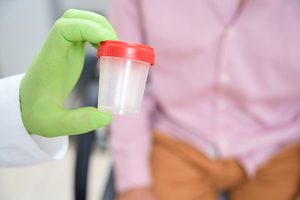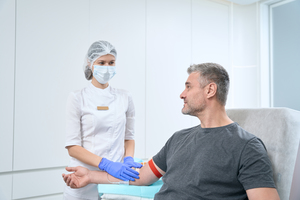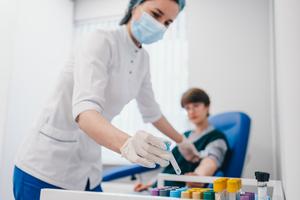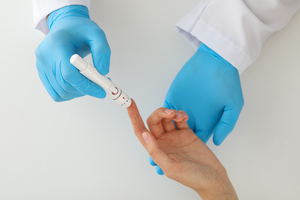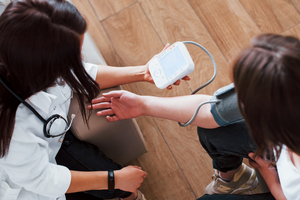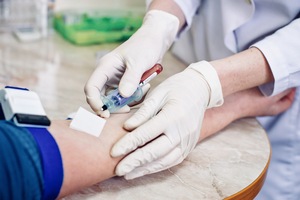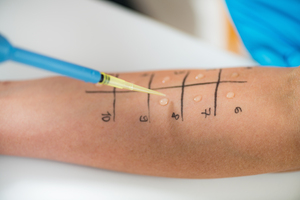Book a Lab test
in Alabama
Own a clinic? Add your location.
Help patients book appointments with you on Solv. It's free!
17 instant-book locations

American Family Care, Parkway
American Family Care

Urgent Care for Children, Highway 280
Urgent Care for Children

American Family Care, Greystone
American Family Care

Southern Immediate Care, Forestdale
Southern Immediate Care
Southern Immediate Care, Lakeshore
Southern Immediate Care

American Family Care, Trussville
American Family Care

Southern Immediate Care, Homewood
Southern Immediate Care

American Family Care, Homewood
American Family Care

American Family Care, Montclair
American Family Care

American Family Care, Cahaba Village
American Family Care

American Family Care, Vestavia
American Family Care

American Family Care, Flintridge
American Family Care

Physicians Care, Hoover North
Physicians Care

American Family Care, Hoover
American Family Care

American Family Care, Gardendale
American Family Care

American Family Care, The Grove
American Family Care

Physicians Care, Hoover South
Physicians Care

Urgent Care For Children, Hoover
Urgent Care For Children

Urgent Care for Children, Trussville
Urgent Care for Children

American Family Care, Pelham
American Family Care
Own a clinic? Add your location.
Help patients book appointments with you on Solv. It's free!
Lab Testing in Alabama
Lab tests gather samples of your blood, urine, saliva, and other biological secretions, which are then evaluated in a lab to assist doctors in diagnosing and treating specific health disorders. Lab tests can be used for a variety of purposes, including diagnosing an illness, detecting changes in an existing condition, and assessing how your body responds to a therapy. They can also be used to track the progression of an illness or a group of disorders.
If your healthcare provider is unable to diagnose your condition decisively or if you are experiencing a variety of symptoms that could indicate any number of disorders, he or she may prescribe a lab test. Lab tests may be conducted to see how you're responding to a drug or to see if you're at risk for certain diseases.
Some lab tests require no preparation at all, while others may require you to fast for eight to twelve hours prior to the test in order to avoid particular foods and beverages giving erroneous findings. For several hours or days before your lab test, your healthcare professional may urge you to stop smoking, exercising, and taking certain medications and nutritional supplements.
To avoid erroneous findings and several trips to the lab for additional testing, ask your doctor for specific recommendations to follow before your lab test.To avoid erroneous findings and several trips to the lab for additional testing, ask your doctor for specific recommendations to follow before your lab test.
During a blood test, the lab technician may use a needle to draw blood from your arm or prick your finger to collect a small sample of blood. During a urine test, your provider will instruct you to go to the restroom and urinate in a sterile cup, then place your sample on a shelf where it can be picked up and processed by a lab worker. The lab testing facility's personnel will show you how to execute each sort of test.
Following the receipt of your test results, your doctor may call you to discuss them or to schedule an appointment. Your doctor will explain your results to you and, if required, discuss treatment choices with you.
Lab Tests FAQs
Where should I get a lab test in Alabama?
Physicians typically prescribe lab tests and can recommend you to one or more trustworthy lab test centers in your area. Hospitals, urgent care facilities, and walk-in clinics that specialize in lab testing can perform tests. Request a list of Alabama lab test providers from your healthcare provider, or utilize Solv to look into what's available in your region.
How much do lab tests cost in Alabama?
The cost of any lab test is determined by a number of factors, including the type of test, your location, whether you have insurance, and the lab test provider's fees. Many health insurance companies will pay some or all of the costs of lab tests. Those without insurance, on the other hand, will most likely face increased costs. Confirm the cost of your lab test based on your health insurance benefits by contacting lab test providers directly.The cost of any lab test is determined by a number of factors, including the type of test, your location, whether you have insurance, and the lab test provider's fees. Many health insurance companies will pay some or all of the costs of lab tests. Those without insurance, on the other hand, will most likely face increased costs. Confirm the cost of your lab test based on your health insurance benefits by contacting lab test providers directly.
Does insurance cover lab testing?
Many health insurance plans will pay for lab tests that your doctor deems medically essential based on your condition. Contacting your insurance provider directly or asking the lab test provider to check your insurance benefits and verify the pricing is the best approach to find out if your health plan covers lab testing.
How long does it take to get lab test results in Alabama?
Depending on the type of test performed, lab staff productivity, and your doctor's availability, lab test results may be available in minutes, hours, days, or weeks. Some Alabama lab test providers allow you to see your findings as soon as they become available online, while others require you to wait for a response from your doctor. Your doctor or the lab provider can offer you a more precise estimate of when you will receive your lab test results.
What is a routine lab test?
Your red and white blood cell count may be checked as part of a standard lab test to see if you have anemia, a blood infection, or blood cancer. It may also assess the health of your organs, such as your heart, kidneys, and liver, as well as test fat levels in your blood to assess your risk of heart disease. Your healthcare professional will be able to tell you exactly what a normal Alabama lab test comprises.
What STDs can be detected by a blood test?
STDs such as syphilis, HIV, hepatitis C, and herpes can all be identified by a blood test. Your doctor may request that you have your blood drawn and sent to a lab, or that you undergo STD screening at a lab test provider. Depending on the Alabama lab test provider you work with, STD test results can arrive in minutes, days, or weeks.
Do I need to see a doctor before getting a lab test?
Some lab test providers demand a doctor's reference before doing specific tests, while others do not. The advantage of seeing a doctor before receiving a lab test is that you can determine whether or not a test is necessary based on your symptoms and a physical examination. A doctor can also assist in determining which tests are required.
How can I book a lab test on Solv?
When it comes to locating a credible lab test supplier, Solv makes it simple to weigh all of your options. Enter the type of lab service you require, as well as your location and state, on our home page. Solv will show you a list of lab test providers in your area, along with their contact information, so you can schedule an appointment straight away.
How long does getting a lab test take?
The majority of lab tests take only a few minutes to complete, while certain providers may have lengthy wait periods that require you to spend up to an hour in the lab. Make an appointment with Solv ahead of time to reduce the amount of time you spend waiting for your lab test.
Should I try at-home lab testing?
At-home lab testing has several advantages, including privacy, convenience, and accuracy. However, your health insurance plan may not cover some at-home lab testing services. Additional lab testing may be requested by some healthcare practitioners to confirm their diagnosis of certain health issues. Inquire with your doctor about whether at-home lab testing is recommended for you based on your specific health circumstances.

Updated on Mar 25, 2025
Solv has strict sourcing guidelines and relies on peer-reviewed studies, academic research institutions, and medical associations. We avoid using tertiary references.
Related Searches
DOT Exam in Alabama
Ear Wax Removal in Alabama
Physical Exam in Alabama
Sports Physicals in Alabama
A1C Test in Alabama
Allergy Testing in Alabama
Basic Metabolic Panel in Alabama
Blood Test in Alabama
CMP Test in Alabama
COVID-19 Antibody Test in Alabama
Cholesterol Test in Alabama
DNA Test in Alabama
Diabetes Test in Alabama
Diagnostic Test in Alabama
Drug Test in Alabama
Flu Test in Alabama
Glucose Test in Alabama
H Pylori Test in Alabama
Hepatitis test in Alabama
Lab Tests in Alabama
Mono Test in Alabama
Pregnancy Test in Alabama
Aetna Urgent Care
Blue Cross Blue Shield Urgent Care
Cigna Urgent Care
COVID-19
Flu
United Health Urgent Care
» All services in AlabamaEveryday Healthcare, Simplified
Expert advice to help you live your best life

